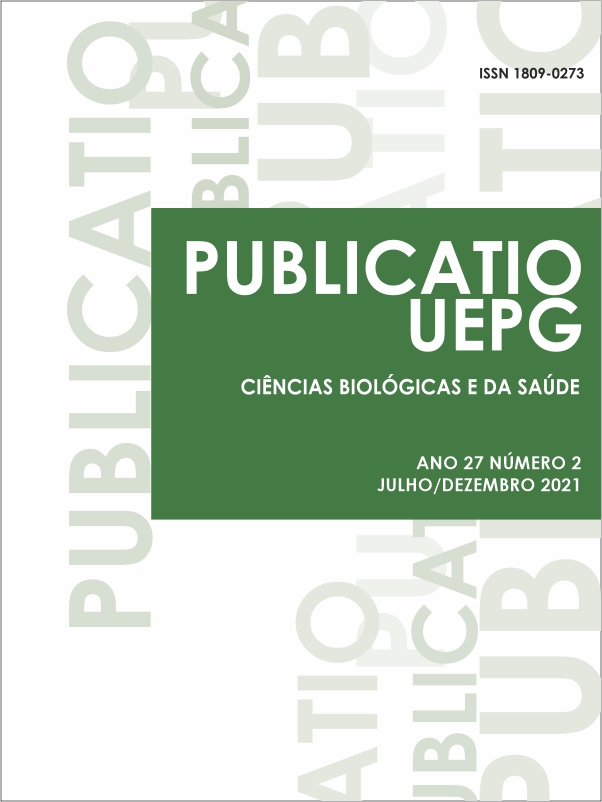ANÁLISE DO EXTRATO HIDROALCOÓLICO DE EUGENIA CATHARINENSIS SOBRE O SNC DE EMBRIÕES DE GALINHA DOMÉSTICA
ANALYSIS OF THE HYDROALCOHOLIC EXTRACT OF EUGENIA CATHARINENSIS ON THE CNS OF DOMESTIC CHICKEN EMBRYOS
Abstract
Considering that medicinal plants represent a therapeutic option of great importance for the maintenance of people's health conditions, especially through the discovery of new bioactive compounds, scientific research and dissemination of therapeutic properties of certain medicinal plants strongly contribute to validate or not the popular use of these plants. Pregnant and lactating women constitute a population group that culturally resorts to the use of medicinal plants, as they believe that they do not harm the embryo or fetus. However, information on the safety of using these products during pregnancy is scarce. Considering these aspects, this work aims to analyze the hydroalcoholic extract on embryonic development. The Myrtaceae family, one of the most important in the Brazilian flora, has representatives of great medicinal interest. Scientific studies have shown that species of the Myrtaceae family have anti-hypertensive, anti-inflammatory, analgesic, antimicrobial and antioxidant properties, and can be used in pregnant women or not. In the present study, we sought to analyze the hydroalcoholic extract of Eugenia catharinensis in chicken embryos (Gallus domesticus) for the evaluation of biochemical parameters related to oxidative stress and antioxidant defenses in nervous tissue. For this analysis, the hydroalcoholic extract of E. catharinensis was used in the doses (150µg and 450µg) and verified the biochemical dosages of the enzyme glutathione peroxidase (GSH-PX), superoxide dismutase (SOD), the content of sulfidrilas and the lipidic peroxidation through TBARS from the brain of chicken embryos. In view of the results obtained, no statistically significant differences were observed between the doses administered to embryos in E9. Based on the data presented, it can be suggested that the hydroalcoholic extract of E. cataharinensis does not present toxicity on the embryonic development of the CNS.
Downloads
Downloads
Published
Issue
Section
License

Este obra está licenciado com uma Licença Creative Commons Atribuição 4.0 Internacional.
Esta licença permite que outros distribuam, remixem, adaptem e criem a partir do seu trabalho, mesmo para fins comerciais, desde que lhe atribuam o devido crédito pela criação original. Este posicionamento está de acordo com as recomendações de acesso aberto da Budapest Open Access Initiative (BOAI).


